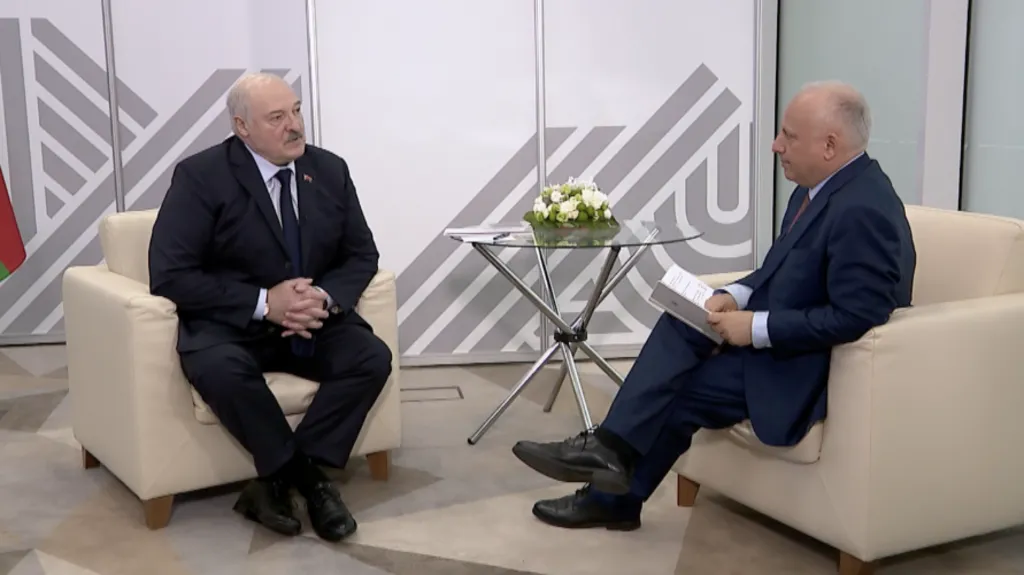Lukashenko on North Korean Troops in Ukraine: A Dangerous Escalation
3 min read
Alexander Lukashenko said claims of North Korean troops sent to fight in Ukraine were "rubbish"

Alexander Lukashenko said claims of North Korean troops sent to fight in Ukraine were "rubbish"
Alexander Lukashenko, the long-standing leader of Belarus, recently spoke with the BBC regarding the claims that North Korea has sent troops to support Russia in its ongoing conflict in Ukraine. Lukashenko, who has been in power for nearly 30 years and is often criticized for his authoritarian regime, offered insights into the dynamics of this geopolitical situation.
Meeting on the sidelines of the Brics summit, where Lukashenko expressed interest in Belarus becoming a member, the conversation quickly turned to the delicate issue of military involvement in Ukraine. When asked about the possibility of North Korean troops joining the conflict, Lukashenko dismissed the reports as “rubbish,” asserting that Russian President Vladimir Putin would not seek the military involvement of another nation. “Knowing his character, Putin would never try to persuade another country to involve its army in Russia’s special operation in Ukraine,” he said.
However, he acknowledged that any foreign troop involvement would significantly escalate the situation. “It would be a step towards the escalation of the conflict if the armed forces of any country, even Belarus, were on the contact line,” Lukashenko explained. He elaborated that any perceived involvement from another nation would likely provoke a strong response from NATO, leading to an increase in military presence in Ukraine.
The conversation then shifted to whether Putin had ever asked Lukashenko to contribute Belarusian troops to the Russian war effort. “Never,” Lukashenko responded firmly, stating that neither Putin nor his defense ministers had ever raised the issue. However, it is important to note that Belarus has played a significant role in facilitating Russia’s military operations, particularly during the initial phases of the invasion that began in February 2022.
When questioned about why he allowed Belarusian territory to be used for the invasion, Lukashenko was evasive. “How do you know I gave permission for Belarusian territory to be used?” he countered. Yet, he acknowledged that military exercises involving Russian troops were taking place in Belarus, leading to their deployment toward Ukraine.
The interaction highlighted the complex and often contentious relationship between Belarus and Russia. For instance, Belarus has become a base for Russia’s tactical nuclear weapons, raising concerns in the international community. When asked about the readiness of these weapons for use in Ukraine, Lukashenko asserted, “Putin will never use the weapons stationed in Belarus without the Belarusian president’s consent.”
The discussion then turned to the implications of nuclear weapon use. Lukashenko stated he would allow their use if Belarus were threatened. “I’m completely ready, otherwise why have these weapons? But only if the boot of one [foreign] soldier steps into Belarus. We have no plans to attack anyone,” he affirmed, illustrating a defensive stance.
Despite his firm declarations about foreign threats, Lukashenko’s government faces significant internal challenges. Human rights groups estimate there are approximately 1,300 political prisoners in Belarus, although Lukashenko previously denied such claims. In a recent conversation, he inadvertently used the term “political prisoner” when referring to individuals released in recent months, which some commentators interpreted as a potential signal of his desire to improve relations with the West.
However, Lukashenko firmly rejected that notion, stating, “We freed political prisoners on humanitarian grounds. They were mostly elderly people and the sick. That’s all. This is no step towards improving relations with you. If you don’t want relations with us, that’s fine. We’ll get by without you.” His remarks underline a longstanding defiance against Western criticism and sanctions.
Overall, Lukashenko’s statements offer a glimpse into the intricate and often fraught relationship between Belarus, Russia, and the broader geopolitical landscape. While he denies any active military role in the Ukraine conflict, his regime remains closely aligned with Moscow, complicating efforts for peace in the region. The potential involvement of North Korean troops, whether factual or not, reflects the ongoing tensions and the precarious nature of international alliances in a rapidly evolving conflict.